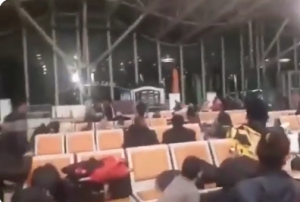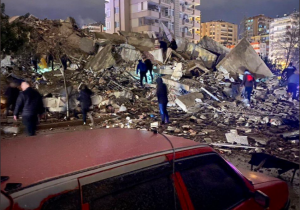The huge
chemical explosion that hit Beirut’s port, devastating large parts of the
Lebanese capital and claiming over 150 lives, left a 43-metre (141 foot) deep
crater, a security official said Sunday.
The blast
Tuesday, which was felt across the county and as far as the island of Cyprus,
was recorded by the sensors of the American Institute of Geophysics (USGS) as
having the power of a magnitude 3.3 earthquake.
It was
triggered by a fire in a port warehouse, where a huge shipment of hazardous
ammonium nitrate, a chemical that can be used as a fertiliser or as an
explosive, had languished for years, according to authorities.
The huge
blast also wounded at least 6,000 people and displaced more than 300,000 from
their destroyed or damaged homes.
The
revelation that the chemicals had languished for years like a ticking time-bomb
in the heart of the capital has served as shocking proof to many Lebanese of the
rot at the core of the state apparatus.
Demonstrators
on Sunday called for renewed anti-government rallies after a night of angry
protests saw them storm several ministries before they were expelled by the
army.
It was a new
tactic for a protest movement that emerged last October to demand the removal
of a political class long accused of being inept and corrupt.
“The
explosion in the port left a crater 43 meters deep,” the Lebanese security
official told AFP, citing assessments by French experts working in the disaster
area.
The crater
is much larger than the one left by the enormous blast in 2005 that killed former
prime minister Rafic Hariri, which measured 10 metres across and two metres
deep, according to an international tribunal investigating his murder.
French
rescue and police teams are among a much larger group of international
emergency response specialists that has flooded into Lebanon to ease pressure
on local authorities unable to cope with the disaster relief on their own.
Qatari, Russian and German rescuers are also
working at the port blast site.






